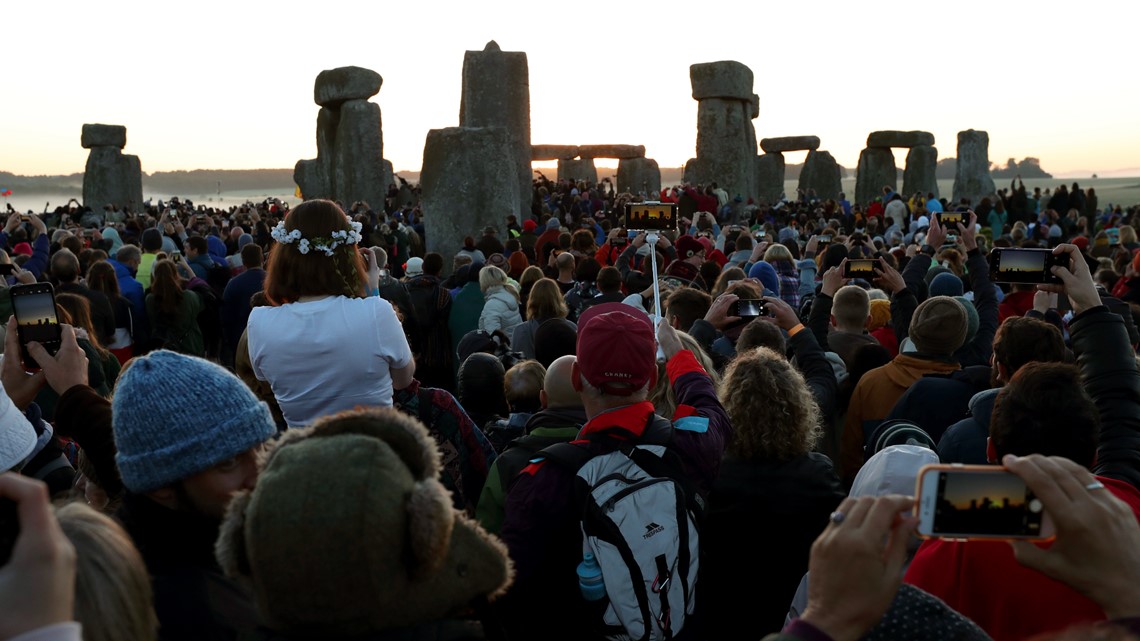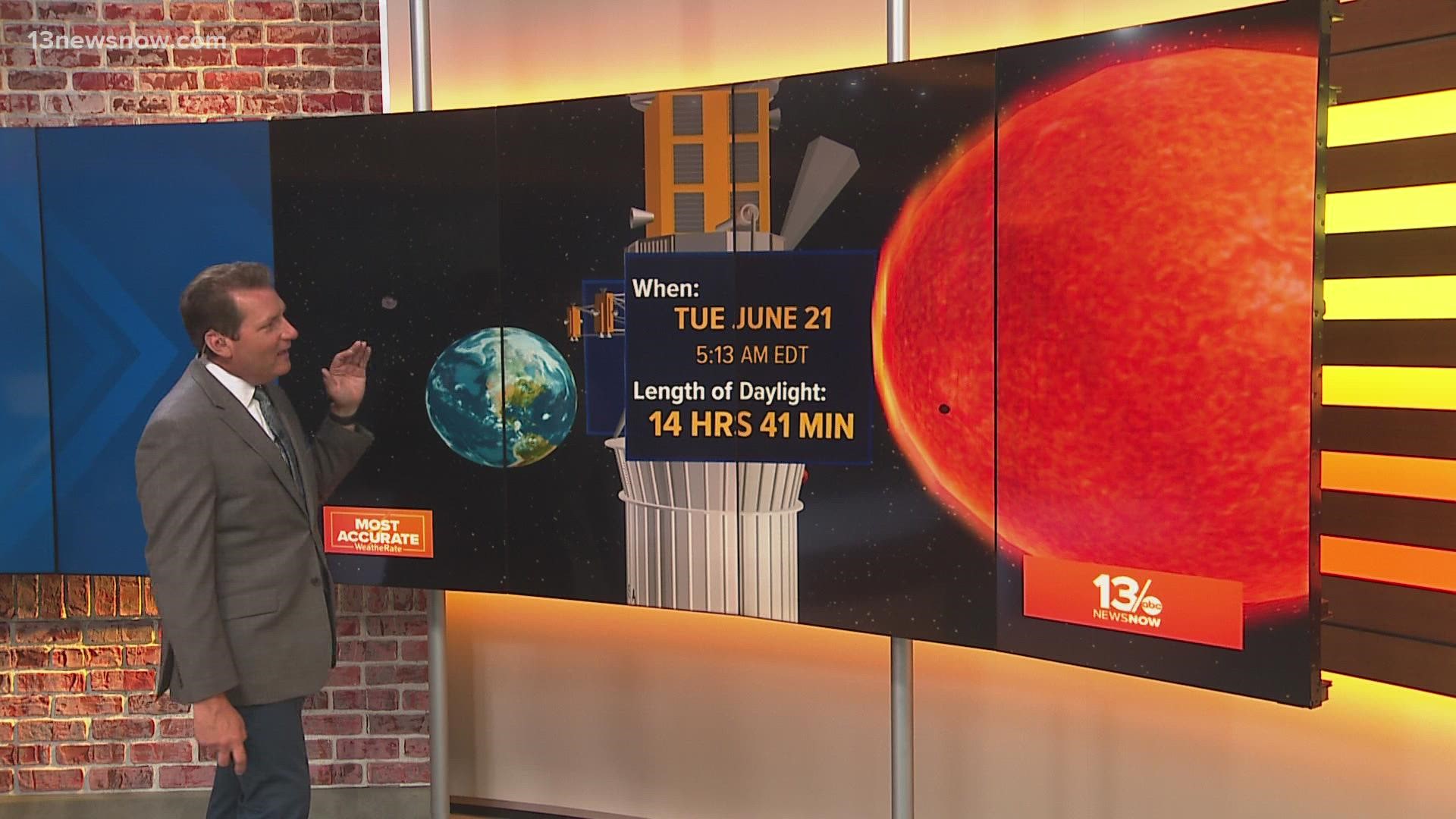The last few days have felt summery enough to most Americans, but the season is only getting started Tuesday.
Tuesday, June 21 is the summer solstice — the longest daylight hours of the year and the official start of summer. The North Pole will tilt closest to the sun at 5:14 a.m. EDT, 4:14 a.m. CDT or 2:14 a.m. PDT. The sun will appear to be directly over the Tropic of Cancer — its furthest point to the north all year.
That's the exact moment astronomical summer begins in the Northern Hemisphere. (Temperature-based meteorological summer, used mainly by researchers who study weather and climate, began on June 1.)
The summer solstice brings the longest daylight hours of the year. The further North you are from the equator, the more daylight you'll get. Daylight hours will gradually shorten until the winter solstice in December.
What causes the summer solstice?
Solstices and seasons happen because of the Earth's tilt. You can think of Earth's axis as an imaginary pole through the center of the planet from top to bottom, NASA explains. Earth spins around this pole, making one turn each day and causing day and night.
That axis is tilted about 23.5 degrees. The Northern Hemisphere is tilted toward the sun in June, causing more direct light and warmer temperatures.
Who celebrates the summer solstice?
People have been tracking and celebrating the sun's progress for a very long time. One of the reasons people built monuments like Stonehenge in England and the Torreon in Machu Picchu was to follow the sun's path and predict its movements, NASA says.
Celebrations continue today around the world — some with a high-tech twist. English Heritage, which looks after Stonehenge, plans to livestream sunrise and sunset from the ancient stone circle. Thousands flock to the monument each year to celebrate the solstice, though in-person revelry was canceled in 2020 and 2021 due to the pandemic.



